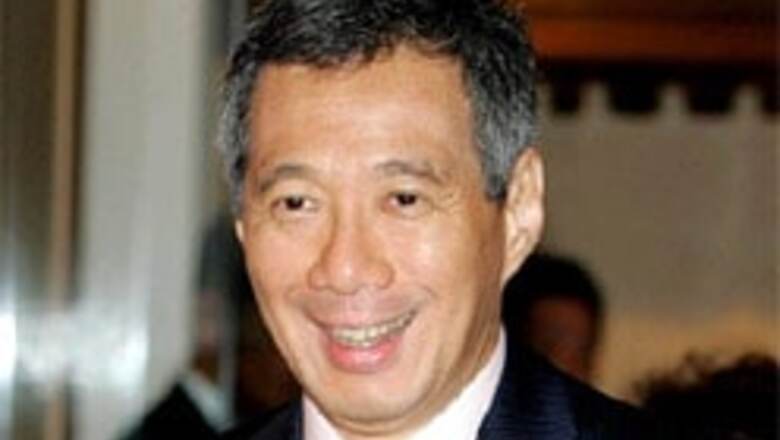
views
Singapore: Singaporeans voted on Saturday in elections expected to deliver a landslide win for the ruling party and its leader Lee Hsien Loong, the son of the island nation's founding father now seeking his own mandate to rule.
Polls opened at 0000 GMT at more than 400 voting stations and were to close 12 hours later. By late morning, one-fifth of the 1.2 million registered voters had cast their compulsory votes, the elections department said.
Counting will begin immediately after the polls close, and the first official results were expected later Saturday night.
The invitation from the ruling People's Action Party is clear: vote for us and we will deliver more of Singapore's trademark economic success and social stability. Most Singaporeans are likely to heed the call, but some say the government needs new voices and looser controls.
The PAP, which has won every general election held since Singapore began independent in 1965, maintains sharp limits on freedom of speech and assembly, and its leaders have sidelined some opposition figures with defamation suits that have rendered them bankrupt, making them ineligible for office.
Any suspense in the election lies in whether the struggling opposition can boost its number of elected seats beyond two out of a total of 84. In a bold gesture, the opposition Workers' Party is challenging Prime Minister Lee Hsien Loong in his stronghold of Ang Mo Kio.
The poll is the first electoral test of Lee's popularity since he took over as prime minister from Goh Chok Tong in August 2004.
Lee, 54, is the son of former prime minister Lee Kuan Yew, who is credited with turning the resource-scarce former British colony into one of Asia's richest, most stable societies.
The government dismisses critics who charge Singapore is run by a political dynasty, and says its leaders are judged on their merits. The elder Lee still wields wide influence over Singaporean affairs as Minister Mentor in his son's Cabinet.
At a campaign rally Friday, the prime minister asked Singaporeans for a strong mandate, and pledged not to leave the poor, the elderly and the unemployed behind.
The island-republic's trade-dependent economy grew by more than 10 per cent in the first three months of this year, topping initial estimates of 9.1 percent, he said.
The other opposition parties running in the election are the Singapore Democratic Alliance and the Singapore Democratic Party.
But the opposition already has no chance of winning 37 seats because it did not field candidates in those constituencies.
Opposition candidates have highlighted a growing income disparity between the rich and poor in the city-state of 4.3 million, where some people struggle financially despite the country's status as a high-tech, manufacturing hub.
The government allotted bonuses to low-wage workers and the elderly in the national budget unveiled in February.
It denied the payouts were designed to buy voter loyalty, though ruling party candidates say constituencies that vote for them will get priority in upgrading of housing estates and other facilities.




















Comments
0 comment